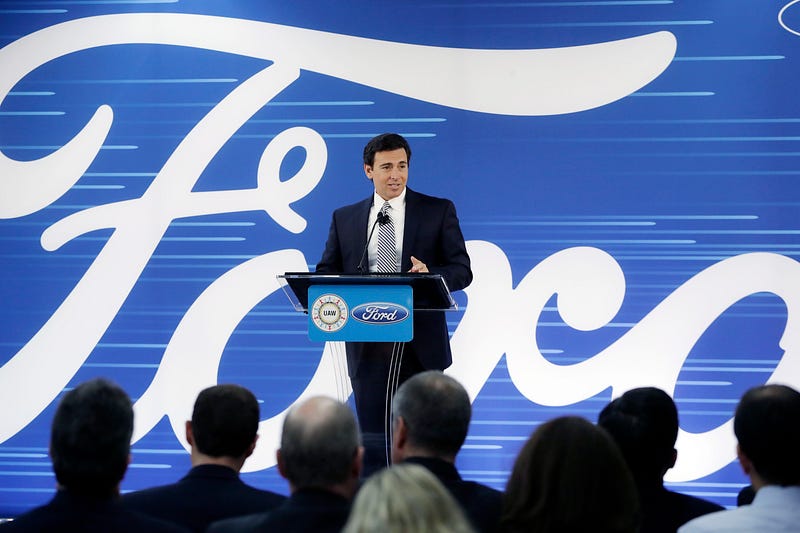“We didn’t cut a deal with Trump,” the CEO said. “We did it for our business.”
On Tuesday, Ford announced that it would scrap plans to build a new factory in Mexico, and instead will invest $700 million in upgrades to an existing plant in Michigan. The company plans to create 700 jobs in the state in its quest to build more electric and self-driving cars.
The next morning, President-elect Donald Trump tweeted his thanks to the company.
He also appeared to take credit for the move in an earlier tweet.
Some in the media were quick to link Trump’s rhetoric about outsourcing to the company’s decision. “Chided by Trump, Ford scraps Mexico factory, adds Michigan jobs,” read a headline on Reuters, pointing to his earlier tweet criticizing GM for importing cars from Mexico — even though most of the cars in question are made in the U.S.
But Trump had very little to do with what happened.
Ford’s CEO, Mark Fields, was very clear about that point on Tuesday. “We didn’t cut a deal with Trump,” he said while talking about the decision on CNN. “We did it for our business.” He told Fox Business that the same decision would have been made even if Trump hadn’t won the election. And company sources indicated that there were no negotiations between Trump and the company ahead of the announcement; Fields called Trump to tell him about the announcement on Tuesday morning after it had been made.
Instead, Fields indicated that he expects to get incentives from Michigan to expand its plant in Flat Rock.
Meanwhile, increasing jobs to make electric vehicles in Michigan rather than Mexico makes far more business sense for Ford. As Danielle Paquette reported at the Washington Post, the engineers who design the cars in Dearborn will be much closer to those producing them, which will make the process easier. It also fits with the industry trend toward keeping innovation and cars that require more skills and computer literacy in the U.S.
The Focus, on the other hand, is still going to be produced in Mexico, just at an existing plant, not a new one. The company had already been publicabout the fact that it will no longer produce small cars in the United States thanks to declining sales and was therefore shifting the Focus to Mexico.
It was equally clear that the change didn’t endanger U.S. jobs because workers would be shifted to producing other vehicles, such as S.U.V.s and trucks, that sell better in this country. A new contract with the United Auto Workers also preserved the jobs in question.
Ford’s move to produce small cars in Mexico originally sparked Trump’s ire on the campaign trail. He called it an “absolute disgrace,” saying, “We shouldn’t allow it to happen. They’ll make their cars, they’ll employ thousands of people, not from this country, and they’ll sell their car across the border.” Trump had even promised that, if elected, he would levy large tariffs on the Ford vehicles produced in Mexico and imported to the United States.
Yet Ford’s Focus plans are not going to change.
While Fields said his decision this week was “a vote of confidence” in Trump’s policies and proposals, many companies appear to be eager to curry favor with the administration in this way in order to press for business-friendly tax and regulation reform. A number of companies have given Trump credit he couldn’t realistically claim for job expansions in a quest to stay out of his line of fire on Twitter and to press the case for their agendas, from tax cuts to leniency on mega mergers.
That doesn’t mean Fields is on board with everything Trump has discussed. Fields told BuzzFeed News that he will push the administration to keep the country’s “deep integration” with Mexico when it begins debating a revamp of NAFTA.

No comments:
Post a Comment